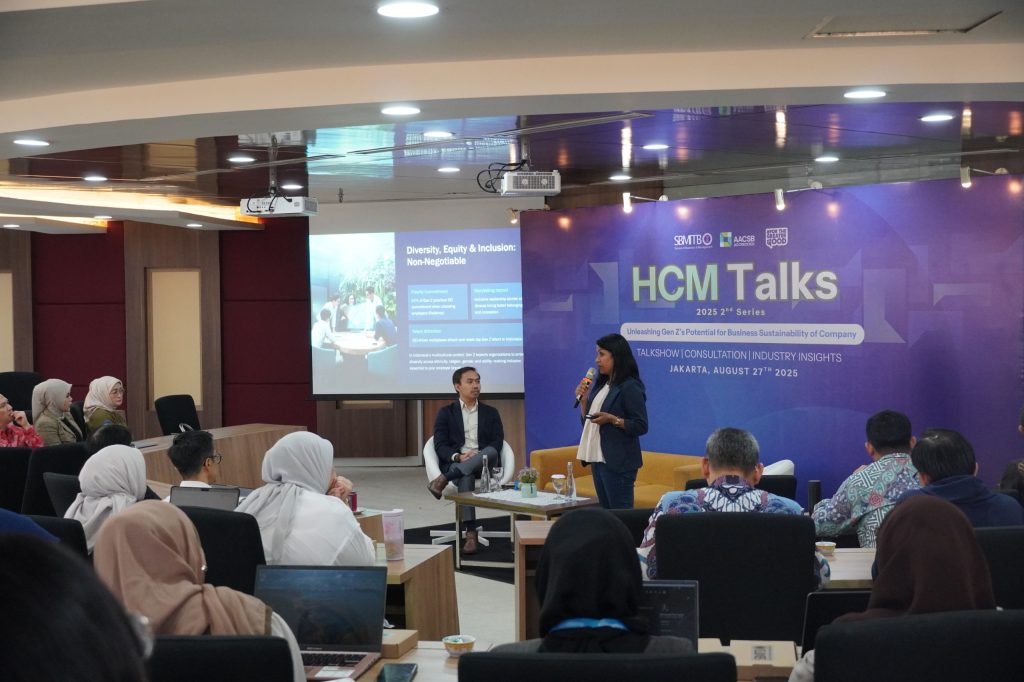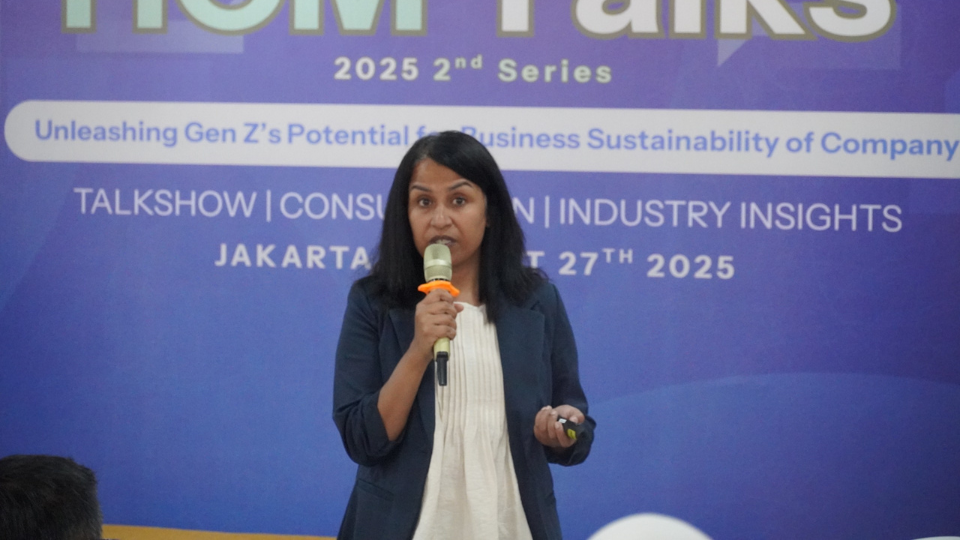Many people believe that Generation Z is unwilling to work hard. However, Professor Hazel Gruenewald, a Visiting Professor of Organizational Behavior at Hochschule Reutlingen, argues that this perception is incorrect. She explains that Generation Z is not afraid of hard work; instead, they tend to dislike jobs that lack meaning.
Hazel made this statement during a seminar titled “Building a Purpose-Driven Work Culture for Gen Z Engagement” at the Human Capital Management Talks 2nd Series 2025. The event was held by the SBM ITB in Bandung (August 27). The seminar was moderated by Dr. Andika Putra Pratama, a lecturer at SBM ITB.
Prof. Hazel emphasized that Gen Z is not a homogeneous group. Their perspectives are highly diverse, influenced by socioeconomic backgrounds, education, and individual experiences.
However, according to Hazel, one of the core values held by Gen Z is corporate ethics. Data shows that around 50% of Gen Z considers ethics an important factor in choosing a company. Hazel emphasized that companies must consistently uphold their values.
“Authenticity is crucial. Gen Z doesn’t just want to hear what a company believes; they want to see how those beliefs are translated into concrete actions. That’s a strategy for building trust,” she said.
In addition to ethics, well-being is a significant concern for many. More than 55% of Gen Z respondents indicated that they prioritize this aspect. Hazel emphasized that diversity, equity, and inclusion (DEI) initiatives should go beyond training programs; they must be deeply embedded in the organizational culture.
To meet this need, Hazel stressed the importance of creating a purpose-driven work environment. Companies should adopt new working methods by fostering a digital culture, promoting continuous learning, leveraging technology, and nurturing a growth mindset.
Additionally, Hazel pointed out the differences in work styles between Gen Z and Millennials. Gen Z tends to be more comfortable with small projects that allow them to develop skills such as creative thinking and digital fluency. However, this generation also has a relatively short attention span and may complete tasks too quickly, sometimes at the expense of quality.
“It’s important for companies to encourage them to ask critical questions, take small but consistent steps, and be bold enough to bring new ideas to the table,” Hazel concluded.
By adopting this approach, companies can attract Gen Z and improve employee retention. Offering flexibility, autonomy, and opportunities for self-development will encourage Gen Z to remain with organizations that reflect their values.






